Newsletter 18 Mar 2024
Environment: What’s Up in GENeva | 18 – 24 March 2024

The Geneva Environment Network’s weekly newsletter includes the latest information on the global environmental agenda, main events, job vacancies, learning opportunities, as well as other useful resources and updates. Stay tuned and follow us on X (Twitter), Facebook, LinkedIn, Instagram, and Youtube, or visit our website regularly for additional updates.
Image of the week | Participants applaud after the closing of the last session of the 2024 Geneva Rights and Environment Talks, Protecting Environmental Defenders: Updates and Challenges, that took place in the margins of the 55th session of the Human Rights Council. “We need to listen to defenders. We need to listen to movements. We need to listen to communities. We need to protect them, and we need to protect the environment”, Tess McEvoy of the International Service for Human Rights concludes. © UNEP/GEN, 11 March 2024
Towards the Plastic Treaty | Climate Impacts of Plastic
Next month, Member States and other stakeholders will gather in Ottawa, Canada, for the fourth session of the Intergovernmental Negotiating Committee to develop an international legally binding instrument on plastic pollution, including in the marine environment (INC-4). In the run-up to the session, the Geneva Beat Plastic Pollution Dialogues provide a space for discussion among stakeholders and for presenting reports and research instrumental for informing negotiators about plastic-related scientific advancements, with this week, the launch and panel discussion on “Climate Impacts of Plastics: Global Actions to Stem Climate Change and End Plastic Pollution”, a report by GRID-Arendal seeking to identify options for measures and strengthen governmental accountability in addressing the climate impacts of plastics. → Register and join us online on Wednesday 20 March 2024 from 14:00 to 15:30 CET
Other sessions of interest taking place this week include:
- Plastic Wastes in ELV | Basel Convention Plastic Waste Partnership Forum on Extended Producer Responsibility | Basel, Rotterdam and Stockholm Conventions | 18 March 2024 | 11:00 – 12:30 CET | Online, Webex
- Plastic Pollution: Polymer Science and Effective Recycling Systems for Plastics Waste Regulation (supported by the Ministry of Foreign Affairs of the Russian Federation) | 22 March 2024 | 11:00–12:30 CET | Palais des Nations, Room XXVI
- Reuse and Refill Solutions: opportunities to end Plastic Pollution | End Plastic Pollution International Collaborative (EPPIC) | 22 March 2024 | 16:00 CET | Online, Zoom
- FOAA: Opportunities for an action agenda under the future plastic pollution instrument | Friends of Action Agenda | 20 March 2024 | 21:00 CET | Online, Zoom
Recent news on plastics include:
- State of the science on plastic chemicals | Identifying and addressing chemicals and polymers of concern | PlastChem Project | 14 March 2024
- Toxic plastic chemicals number in the thousands, most are unregulated, report finds | CNN Health | 14 March 2024
- Chemicals in plastics far more numerous than previous estimates, report says | Reuters | 14 March 2024
- Towards a Global Plastics Treaty: Tracing the UN Negotiations | Dreyer, E., Hansen, T., Holmberg, et al. | Lund University | 11 March 2024
- Frequently Asked Questions on Plastics and Chemicals | IPEN | March 2024
- Health Effects of Fossil Fuel–Derived Endocrine Disruptors | Tracey J. Woodruff | The New England Journal on Medicine | 7 March 2024
- Analysis of the Revised Zero Draft of the Plastics Treaty | CIEL | March 2024
→ Discover more resources in CIEL’s Preparatory Materials for the Fourth Plastics Treaty Negotiations
Environment @ 55th Session of the Human Rights Council
The environment remains high on the agenda at the 55th session of the Human Rights Council (HRC55), as various moments to take note of this week include:
- Deadline for tabling resolutions | 21 March 2024 | 13:00 CET | e-Delegate | Various environment-related resolutions are expected to be tabled in this session following informal consultations, including:
- On the mandate of the Special Rapporteur on the issue of human rights obligations relating to the enjoyment of a safe, clean, healthy and sustainable environment | Costa Rica, the Maldives, Morocco, Slovenia, and Switzerland
- On the right to food | Cuba
- Human Rights in Azerbaijan ahead of UNFCCC COP29 | 21 March 2024 | 16:00 – 17:00 CET | Palais des Nations, Room XXV | Institute for Human Rights
→ Regular updates on key environmental issues at HRC55, side events, and further resources will be made available on our dedicated HRC55 and the environment update.
Celebrating Forests and Innovation
The United Nations General Assembly proclaimed 21 March the International Day of Forests in 2012. The Day celebrates and raises awareness of the importance of all types of forests. As a global hub for environmental governance, Geneva and the organizations it hosts, play a role in the protection of forests globally. → Learn more about the Importance of Forests and the Role of Geneva.
The theme for 2024 is Forests and Innovation: New Solutions for a Better World. Innovation and technology have transformed countries’ ability to monitor and report on their forests: 13.7 billion tonnes of carbon dioxide forest emission reductions or enhancements have been reported to the United Nations Framework Convention on Climate Change, thanks to innovative and transparent forest monitoring. With 10 million hectares of forest lost to deforestation and approximately 70 million hectares affected by fires annually, technological innovations are needed for early warning systems for fires and forest loss, and for enabling sustainable commodity production. Technological innovations can empower Indigenous Peoples through mapping and securing customary land. For the Geneva Celebration of International Day of Forests 2024, the United Nations Economic Commission for Europe will host a hybrid event, on 21 March 2024 from 10:00 CET, followed by a reception hosted by the Permanent Mission of Italy. → Register for in-person or online attendance.
Celebrating Water and Peace
World Water Day held on 22 March every year since 1993, celebrates water and inspires action to tackle the global water crisis. This year celebration will focus on Leveraging Water for Peace. Water can create peace or spark conflict. When water is scarce or polluted, or when people have unequal, or no access, tensions can rise between communities and countries. As climate change impacts increase, and populations grow, there is an urgent need, within and between countries, to unite around protecting and conserving our most precious resource. Public health and prosperity, food and energy systems, economic productivity and environmental integrity all rely on a well-functioning and equitably managed water cycle.
In Geneva, water is discussed in various fora (human rights, humanitarian, health, meteorology, disaster prevention, nature conservation, economy, peace, pollution, etc.) and numerous organizations (UN, intergovernmental organizations, NGOs, business organizations, academic) focus on water issues, making this region a strategic hub for global water governance. → Learn more about the Water Cycle and the Role of Geneva
To mark this year’s celebration, various events are taking place in Geneva:
- Water as a catalyst for cooperative climate action and peace | 22 March 2024, 10:00–11:30 CET | WMO Headquarters | Room Obasi | Slovenia, WMO, UNECE, Geneva Water Hub
- Ecumene Discussion Club Geneva Roundtables | Water: Time to Build Bridges | 22 March 2024, 13:00–14:30 CET | Palais des Nations, Room XXVI | Ecumene Discussion Club Geneva
- UNITAR Global Water Academy Conference: World Water Day | Palais des Nations, Room V & Online, Zoom | UNITAR
- Digital Transformation Dialogues: Unleashing the Power of Digital Water Solutions: Exploring the flow of emerging technologies | 22 March 2024, 14:00 – 15:00 CET | Online | ITU, UN-Water, WMO
- H2O – The story of water | Visual, sonic and virtual city art-walk | 21- 24 March 2024 | Planète Bleue
- Balade le long de la Drize – Journée mondiale de l’eau | 22 March 2024, 12:00 -14:00 CET | Office cantonal de l’eau
- Consult our World Water Day 2024 page for more activities taking place in Geneva and beyond. The UN’s flagship report on water and sanitation is launched every year on World Water Day. The 2024 edition will explore the theme of ‘Water for prosperity and peace’. → Follow online the global observation (22 March, 13:00-18:00 CET) and the launch of the report taking place at UNESCO Headquarters.
At the Frontline of Climate Action
Every 23 March, we celebrate World Meteorological Day, commemorating the coming into force of the Convention establishing the World Meteorological Organization on 23 March 1950. The observation showcases the essential contribution of National Meteorological and Hydrological Services to the safety and well-being of society, reflecting on topics such as weather, climate, or water-related issues. → Learn about the role of Geneva in addressing Weather and Climate Extreme Events in a Changing Climate
This year’s celebration, organized under the theme “At the Frontline of Climate Action”, will feature the launch of a climate action campaign to raise awareness globally and mobilize society to act developed by the United Nations Development Programme. The campaign, among other things, features children presenting weather forecasts of 2050 on national TV channels and shares a message of ambition, commitment and action from both policymakers and individuals to keep the 1.5° degree ambition alive. → Join the launch live webcast on 21 March 2024 from 15:00 CET.
The WMO’s flagship report, “State of the Global Climate 2023”, will be released this week. It highlights how 2023 was a record-breaking year for temperature, ocean heat, sea level rise, sea ice and glacier retreat. It also focuses on the impacts of climate change and more extreme weather on sustainable development, with separate sections on renewable energy and climate finance. → Follow the press conference with WMO Secretary-General Celeste Saulo and report authors on UN TV on 19 March 2024 from 14:00 CET.
Global Methane Forum 2024
The 2024 Global Methane Forum is taking place this week at Palais des Nations, from 18-21 March 2024, to promote replicable methane mitigation successes and mobilize action to continue making progress toward addressing methane. Hosted by the Global Methane Initiative and the United Nations Economic Commission for Europe in partnership with the Global Methane Hub and the Climate and Clean Air Coalition, the Forum convenes global thought and industry leaders to advance action to achieve ambitious global methane mitigation targets, and to highlight methane mitigation activities, including achieving the goals of the Global Methane Pledge. A cross-cutting plenary session featuring high-level speakers from governments, international organizations, and industry will take place on 19 March 2024. Within the framework of the Forum, the UNECE Sustainable Energy Division will hold annual sessions of two Expert Groups: the 19th session for the Group of Experts on Coal Mine Methane and Just Transition, from 18-19 March, and the 11th session for the Group of Experts on Gas, from 20-21 March. → Learn more about the Forum and register on Indico to attend.
Earlier this month, the International Energy Agency launched the Global Methane Tracker 2024, which found both signs of progress and some worrying trends. While governments and fossil fuel companies have committed to take action on methane, overall emissions remain far too high to meet the world’s climate goals. Large methane emissions events detected by satellites also rose by more than 50% in 2023 compared with 2022, with more than 5 Mt of methane emissions detected from major fossil fuel leaks around the world.
Enjoy a Green Spring in Geneva
Winter is officially ending this week, with Wednesday 20 March marking the start of the spring equinox in the Northern Hemisphere, while in Geneva, the arrival of spring was officially announced on 3 March, following the hatching of the first leaf of a chestnut tree on Promenade de la Treille, a tradition that started back in 1818. To celebrate the end of the winter, various Geneva neighborhoods celebrate by burning dolls in its effigy with the Fête du Bonhomme Hiver. → Discover other spring activities taking place around Geneva in our Green Spring update!
Since 2007, at the arrival of spring, the world has observed Earth Hour, with individuals switching off their lights to show symbolic support for the planet and to raise awareness of the environmental issues affecting it. With less than 7 years to stay within the 1.5°C climate threshold, Earth Hour is a collective reminder that the world is our shared home and needs the help we all can – and must – play a part in protecting it. The yearly campaign calls individuals to switch off their lights at 20:30 local time and give an hour for Earth, spending 60 minutes doing something positive for our planet. To contribute to the tradition, the Jet d’Eau will be switched off.
What (Else) to Read Next?
- Don’t Geoengineer Africa! | Geoengineering Monitor | 13 March 2024
African peoples are deeply concerned about harmful proposals to advance geoengineering technologies — large-scale technological interventions in the Earth’s oceans, soils and atmosphere, with the aim of tinkering with some of the symptoms of climate change rather than addressing its root causes.
- DDG Ellard and fisheries subsidies negotiations chair share next steps at World Ocean Summit | WTO | 13 March 2024
At a “fireside chat” of the World Ocean Summit on 13 March, organized by The Economist Group, WTO Deputy Director-General Angela Ellard and Ambassador Einar Gunnarsson of Iceland, chair of the negotiations on fisheries subsidies, provided an update on the work ahead to implement the Agreement on Fisheries Subsidies and to capture progress made in the second wave of negotiations for additional provisions. - The State of Global Environmental Governance 2023 | IISD | 12 March 2024
In global environmental talks in 2023, the focus across nearly all issue areas was funding implementation and reviewing performance.
- UNECE issues guidelines for measuring the circular economy | UNECE |
The guidelines propose 19 core statistical indicators to measure the circular economy, which will be further refined through pilot testing by volunteer countries. - The Earthshot Prize ‘Launchpad’ Platform to Catalyze More Investment in Climate Innovation | Earthshot Prize | 11 March 2024
Currently in its pilot phase, Launchpad spotlights 25 Earthshot solutions from six continents, with funding needs exceeding £400 million. Launchpad offers investors and philanthropists access to a curated database of scalable environmental solutions and details of their current funding needs. Then, these funders can browse and discover potential matches. - How to Lose Half a Trillion | Deep sea mining to destroy at least half a trillion dollars in corporate value and natural capital | Planet Tracker | March 2024
This report found that financial market participants consistently value economic sectors dependent on the exploitation of nature’s products more than sectors dependent on nature remaining intact. Yet investing in the latter over the last three decades would have yielded financial returns three times higher than investing in the former.
- European climate risk assessment | European Environment Agency | March 2024
The EUCRA report builds on and complements the existing knowledge base on climate impacts and risks for Europe, including recent reports by the Intergovernmental Panel on Climate Change, the Copernicus Climate Change Service and the Joint Research Centre of the European Commission, as well as outcomes of EU-funded research and development projects and national climate risk assessments. The knowledge in this first-of-its-kind assessment is synthesised with the aim of supporting strategic policymaking.
Events
See all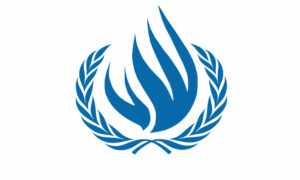
Body Meeting
55th regular session of the Human Rights Council | HRC55
26 Feb – 05 Apr 2024
Palais des Nations
HRC


Cinema
Festival du Film Vert 2024 | Genève
12 – 28 Mar 2024
Multiple Locations
Festival du Film Vert
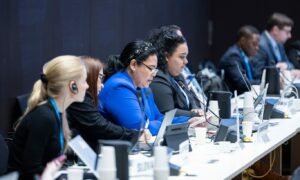
Body Meeting
Ninth meeting of the Intergovernmental Negotiating Body (INB) for a WHO instrument on pandemic prevention, preparedness and response
18 – 28 Mar 2024
WHO
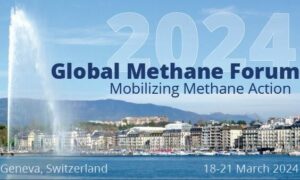

Body Meeting
9th Joint OECD-UNECE Seminar on SEEA Implementation
18 – 20 Mar 2024
Palais des Nations | Room V
UNECE, OECD

Body Meeting
Group of Experts on Coal Mine Methane and Just Transition
18 – 19 Mar 2024
Palais des Nations | Room Tempus
UNECE

Virtual
Plastic Wastes in ELV | Basel Convention Plastic Waste Partnership Forum on Extended Producer Responsibility
18 Mar 2024 11:00 – 12:30
Online | Webex
BRS
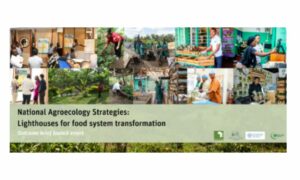
Conference
National Agroecology Strategies: Lighthouses for food system transformation
19 Mar 2024 13:00 – 14:30
Palais des Nations | Room 542 & Online | Zoom
FAO

Conference
Principles for Green Financing for Sustainable Real Estate, Infrastructure and Urban Transformation Projects
19 Mar 2024 14:30 – 17:30
Palais des Nations | Room H/3-307B - H.307B & Online
UNECE

Virtual
NCD Hard Talks webinar: Toxic air is fueling NCDs-why are we not taking action?
20 Mar 2024 13:00 – 14:30
Online | Zoom
WHO

Virtual
Launch and Panel Discussion | Climate Impacts of Plastics: Global Actions to Stem Climate Change and End Plastic Pollution
20 Mar 2024 14:00 – 15:30
Online | Webex
GRID-Arendal, GEN

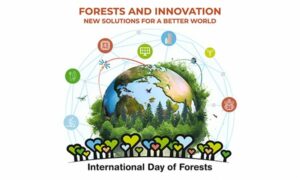

Conference
Forest Talk: Innovation 4 Climate | International Day of Forests 2024
21 Mar 2024 10:00 – 14:00
Palais des Nations | Auditorium (Building H)
UNECE
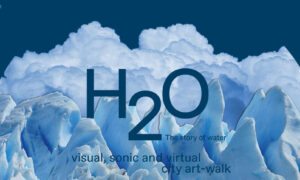
Afterwork
H2O – The story of water | Visual, sonic and virtual city art-walk
21 – 24 Mar 2024
Geneva
Blue Planet


Conference
World Meteorological Day 2024 Ceremony | Climate Action Campaign Launch
21 Mar 2024 15:00 – 16:50
WMO HQ & Online
WMO, UNDP

Local
Sunshine in thermal networks: feedback from an 800 m2 vacuum solar thermal installation connected to a GIS DAC.
21 Mar 2024 17:15 – 18:45
University Carl-Vogt, Room CV1

Workshop
Atelier La Fresque du Climat
21 Mar 2024 18:30 – 21:30
Foound | Salle virginia
Association la Fresque du climat


Body Meeting
UNECE Hydrogen Task Force Meeting
22 Mar 2024 10:00 – 18:00
Palais des Nations | Room H-307-1 & Online
UNECE

Conference
Water as a Catalyst for Cooperative Climate Action and Peace | World Water Day 2024
22 Mar 2024 10:00 – 11:30
WMO Headquarters | Salle Obasi
Slovenia, WMO, UNECE, Geneva Water Hub

Virtual
Launch of the Toolkit for Health Professionals on Communicating about Climate change and Health
22 Mar 2024 13:30 – 14:45
Online | Zoom
WHO

Conference
Human Rights in Azerbaijan ahead of UNFCCC COP29 | HRC55 Side Event
21 Mar 2024 16:00 – 17:00
Palais des Nations, Room XXV
Institute for Human Rights

Conference
UNITAR Global Water Academy Conference: World Water Day
22 Mar 2024 14:00 – 18:00
Palais des Nations | Room V & Online | Zoom
UNITAR

Virtual
Digital Transformation Dialogues: Unleashing the Power of Digital Water Solutions: Exploring the flow of emerging technologies
22 Mar 2024 14:00 – 15:00
ITU, UN Water, WMO

Conference
Ecumene Discussion Club | Geneva Roundtables
22 Mar 2024
Palais des Nations, Room XXVI
Ecumene Discussion Club
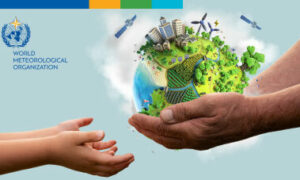

Jobs
See all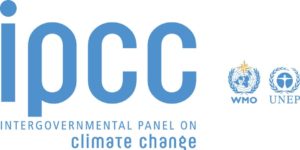
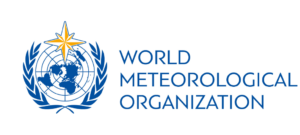
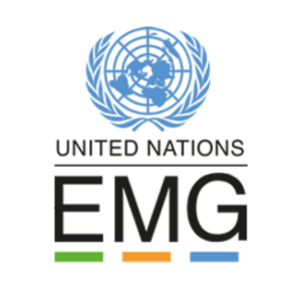
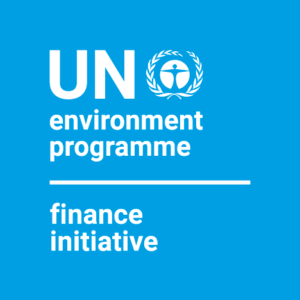


Updates
See all
26 Apr 2024
Towards Plastics Pollution INC-4

24 Apr 2024
Plastics and the Environment
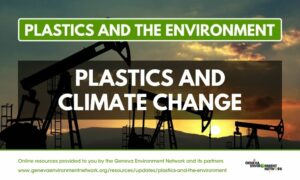



17 Apr 2024
